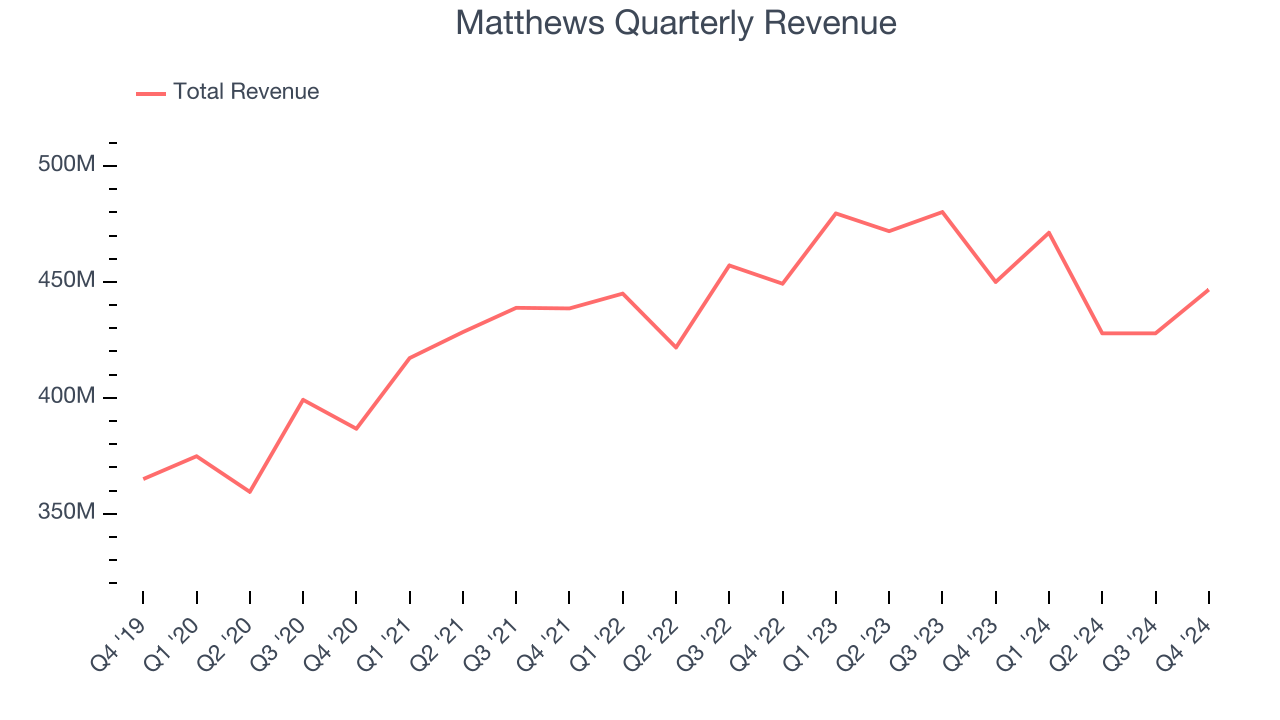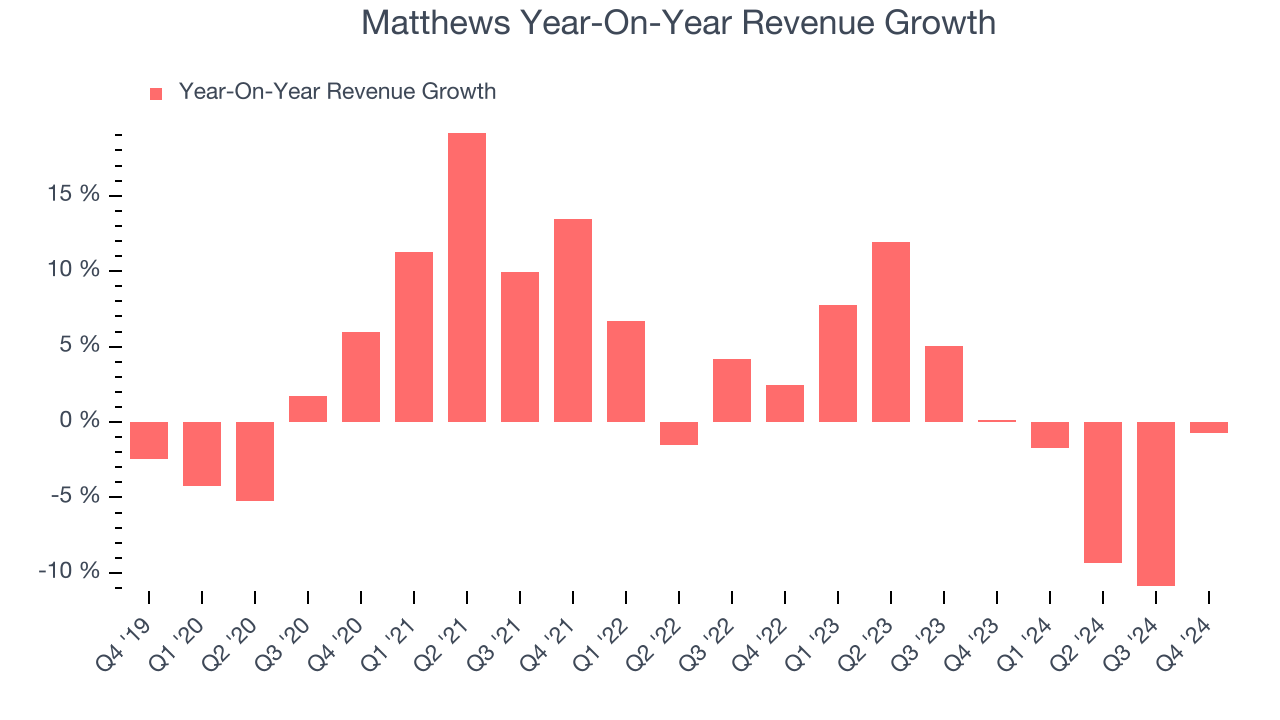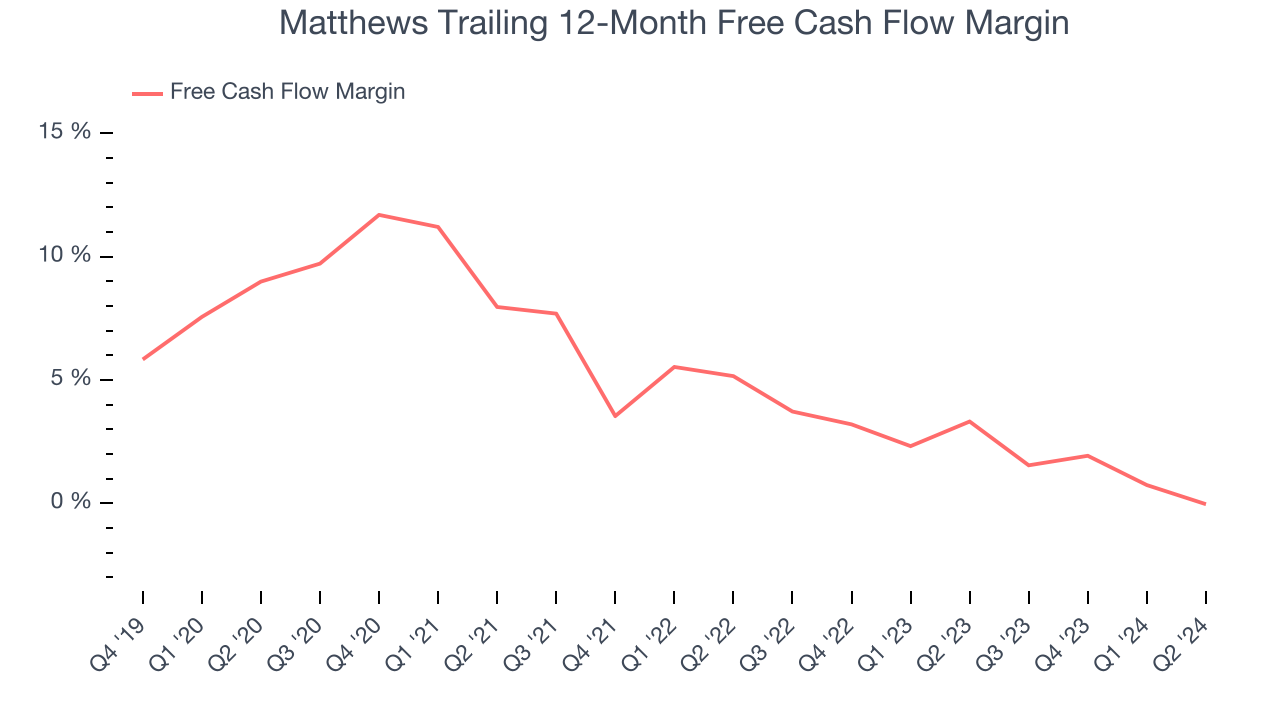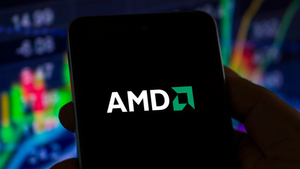
Diversified solutions provider Matthews International (NASDAQ: MATW) announced better-than-expected revenue in Q4 CY2024, but sales were flat year on year at $446.7 million. Its non-GAAP profit of $0.55 per share was significantly above analysts’ consensus estimates.
Is now the time to buy Matthews? Find out by accessing our full research report, it’s free.
Matthews (MATW) Q4 CY2024 Highlights:
- Revenue: $446.7 million vs analyst estimates of $442.3 million (flat year on year, 1% beat)
- Adjusted EPS: $0.55 vs analyst estimates of $0.26 (significant beat)
- Adjusted EBITDA: $58.1 million vs analyst estimates of $45.6 million (13% margin, 27.4% beat)
- Operating Margin: -11.1%, down from 2.9% in the same quarter last year
- Free Cash Flow was $23.91 million, up from -$41.34 million in the same quarter last year
- Market Capitalization: $737.1 million
Company Overview
Originally a death care company, Matthews International (NASDAQ: MATW) is a diversified company offering ceremonial services, brand solutions and industrial technologies.
Specialized Consumer Services
Some consumer discretionary companies don’t fall neatly into a category because their products or services are unique. Although their offerings may be niche, these companies have often found more efficient or technology-enabled ways of doing or selling something that has existed for a while. Technology can be a double-edged sword, though, as it may lower the barriers to entry for new competitors and allow them to do serve customers better.
Sales Growth
Reviewing a company’s long-term sales performance reveals insights into its quality. Any business can have short-term success, but a top-tier one sustains growth for years. Over the last five years, Matthews grew its sales at a sluggish 3% compounded annual growth rate. This fell short of our benchmark for the consumer discretionary sector and is a poor baseline for our analysis.

Long-term growth is the most important, but within consumer discretionary, product cycles are short and revenue can be hit-driven due to rapidly changing trends and consumer preferences. Matthews’s recent history shows its demand slowed as its revenue was flat over the last two years. 
This quarter, Matthews’s $446.7 million of revenue was flat year on year but beat Wall Street’s estimates by 1%.
We also like to judge companies based on their projected revenue growth, but not enough Wall Street analysts cover the company for it to have reliable consensus estimates.
When a company has more cash than it knows what to do with, buying back its own shares can make a lot of sense–as long as the price is right. Luckily, we’ve found one, a low-priced stock that is gushing free cash flow AND buying back shares. Click here to claim your Special Free Report on a fallen angel growth story that is already recovering from a setback.
Cash Is King
If you’ve followed StockStory for a while, you know we emphasize free cash flow. Why, you ask? We believe that in the end, cash is king, and you can’t use accounting profits to pay the bills.
Matthews has shown poor cash profitability over the last two years, giving the company limited opportunities to return capital to shareholders. Its free cash flow margin averaged 3.5%, lousy for a consumer discretionary business.

Matthews’s free cash flow clocked in at $23.91 million in Q4, equivalent to a 5.4% margin. Its cash flow turned positive after being negative in the same quarter last year, but we wouldn’t read too much into the short term because investment needs can be seasonal, causing temporary swings. Long-term trends are more important.
Key Takeaways from Matthews’s Q4 Results
We were impressed by how significantly Matthews blew past analysts’ EPS and EBITDA expectations this quarter. We were also excited its revenue slightly outperformed Wall Street’s estimates. Zooming out, we think this was a good quarter with some key areas of upside. The stock traded up 9.8% to $28 immediately after reporting.
Sure, Matthews had a solid quarter, but if we look at the bigger picture, is this stock a buy? What happened in the latest quarter matters, but not as much as longer-term business quality and valuation, when deciding whether to invest in this stock. We cover that in our actionable full research report which you can read here, it’s free.





